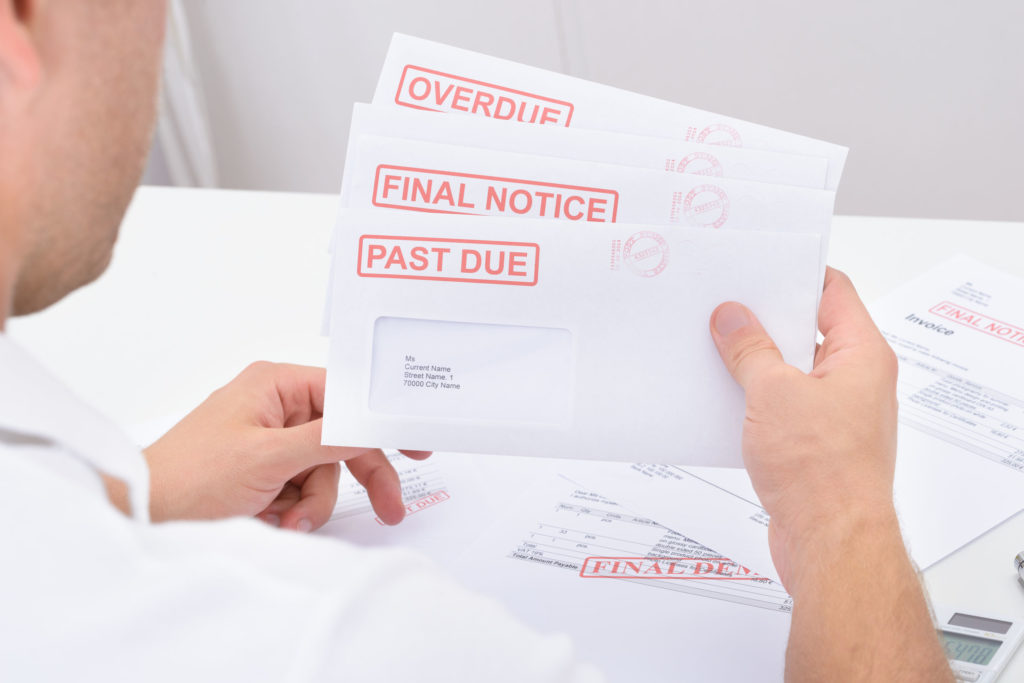Dischargeable Debt

If you’re unable to make payments on past due bills and are considering filing for bankruptcy, you may be wondering if it is possible to discharge debt completely. Although there are some types of debt that cannot be eliminated, a Chapter 7 or Chapter 13 bankruptcy may be able to help you discharge or consolidate a significant portion of your debts.
Learn more about dischargeable debt and what to expect when you file for bankruptcy from the Arizona bankruptcy attorneys at Lerner and Rowe Law Group.
What Is Dischargeable Debt?
When it comes to bankruptcy, there are two primary kinds of debt: dischargeable and non-dischargeable. When debt is discharged, the debtor is no longer obligated to make payments on the discharged amount, and creditors are no longer legally allowed to try to collect on those debts. In addition to debts being dischargeable and non-dischargeable, they will also be either unsecured or secured.
Unsecured Debt
By filing for bankruptcy with a qualified Arizona attorney from Lerner and Rowe Law Group, you can discharge debt that is unsecured. Unsecured debts are those which are not backed by collateral.
Credit Card Bills
Most credit card debt is unsecured and can be discharged. The exception to this rule is if the credit card was issued after a secured contract was signed, or if cross-collateralization occurs by an issuing credit union, in which case the credit card debt may be secured.
If you have fallen behind on credit card payments and cannot keep up with the monthly interest accruing on your principal balance, it may be worth filing for bankruptcy to get your finances back on track.
Medical Bills
Medical debt is a common cause of financial distress in Arizona and throughout the country, where healthcare costs have skyrocketed in recent decades. Even with insurance, a debilitating illness or unexpected medical procedure can leave you reeling and unable to pay your medical bills. Bankruptcy may be able to help you discharge debt from exorbitant hospital bills.
Personal Loans
Individuals often turn to personal loans as a way to pay off their already existing debts. Unfortunately, while this may solve one problem, it may create several more because of the high interest rates associated with personal loans.
Payday Loans
These loans are marketed as a kind of paycheck advance for debtors to put towards short-term expenses. Usually, the lender will lend an amount of money at an extremely high interest rate with the expectation that you’ll pay back the loan in full, plus interest, by the time you receive your next paycheck. Most people who require a payday loan in the first place are not in any position to pay back these loans or their accrued interest. A bankruptcy can discharge this type of debt.
Past Due Rent
Falling behind on your monthly rent payments can lead to a court-ordered eviction. Not only do you have to find a new place to live, you may also be hounded by your former landlord to make payments on past due rent. A skilled bankruptcy lawyer can help you discharge debt related to past due rent.

Past Due Utility Bills
Utility companies may continue to try to collect on past due utility bills, even after you’ve left your home. Filing for bankruptcy can help put a stop to harassing calls from debt collectors and eliminate debt from unpaid utility bills.
Government Benefit Overpayment
If you received government benefits such as unemployment, social security, disability, or paid family leave when you were not actually eligible for these benefits, or if you were issued more than you were eligible for, the government agency that issued them may demand a full refund of the excess funds. If you are unable to pay back these benefits, a bankruptcy could discharge this debt in full or in part.
Judgments
Many car accident claim debts, including medical care for those who were injured in the accident, can be discharged on the condition that you did not cause the accident while under the influence of drugs or alcohol.
Most civil court judgments may also be discharged, given that they are not for criminal restitution.
Wage Garnishments
If a creditor obtains a wage garnishment against you, they can generally seize up to 25 percent of your non-exempt weekly earnings. Filing bankruptcy can often put a stop to wage garnishment with the exception of child support, student loan, or unpaid taxes.
Secured Debt
Secured debts, on the other hand, usually involve some kind of collateral on the part of the debtor. These are more difficult to have discharged in a bankruptcy, but you may be able to surrender the necessary collateral and still discharge debt, or in some cases, keep your property and still eliminate or consolidate a portion of your debt.

Home Mortgage Loans
Discharging debt incurred from your home mortgage loan can be tricky and the result varies greatly depending on whether or not you qualify for a Chapter 7 bankruptcy or a homestead exemption. You may have to surrender your home to discharge debt from your mortgage loan completely. Alternatively, you may be able to keep your home if you restructure your mortgage loan into payments you can afford.
Title & Registration Loans
Many people turn to title or registration loans when they are in need of quick cash, but interest rates on these types of loans are often unmanageable. Title and registration loans can both be discharged in bankruptcy, although you may be required to surrender your vehicle to discharge the loan debt.
Vehicle Repossession Deficiency Balances
If your vehicle has been repossessed or you voluntarily turned it in because you simply couldn’t keep up with payments, you may still be liable for deficiency balances from the loan’s security agreement even after losing your car. Filing for bankruptcy can discharge debt from deficiency balances.
Facing repossession of your car or home? A Phoenix repossession lawyer at Lerner and Law Group may be able to help you avoid losing your vehicle and your house. Unsure whether your debt is eligible for discharge? We can answer all your questions to help you evaluate your options.
What Is Non-Dischargeable Debt?
Non-dischargeable debts are specific kinds of debt that are not dischargeable when you file for bankruptcy in Arizona. Although these debts cannot be eliminated, you may still be able to restructure them in order to help you make payments.
Common non-dischargeable debt includes:
- Child Support
- Alimony
- Other Family Support Obligations
- Student Loans
- Civil and Criminal Fines & Restitution
- Most State & Federal Taxes
- HOA Fees (Unless you surrender your home)
Learn more about Chapter 7 or Chapter 13 bankruptcies and find out how Lerner and Rowe Law Group can help you take control of your finances and your future by browsing our bankruptcy resources.
Lerner and Rowe Law Group Can Help You Discharge Debt
If you’re behind on payments or barely paying the interest on your debts, in danger of losing your home or car, or being harassed by collectors, Lerner and Rowe Law Group can help. Contact us today to find out more about your legal bankruptcy options.
Worried about your inability to pay? We offer affordable payment plans.
Lerner and Rowe Law Group has offices conveniently located in Phoenix and Tucson. Visit us during regular business hours, Monday through Friday, 8:00 a.m. to 5:00 p.m., or give us a call anytime at 602-667-7777. You can also chat with an online representative, or submit a free case evaluation from the comfort of your own home 24/7.

